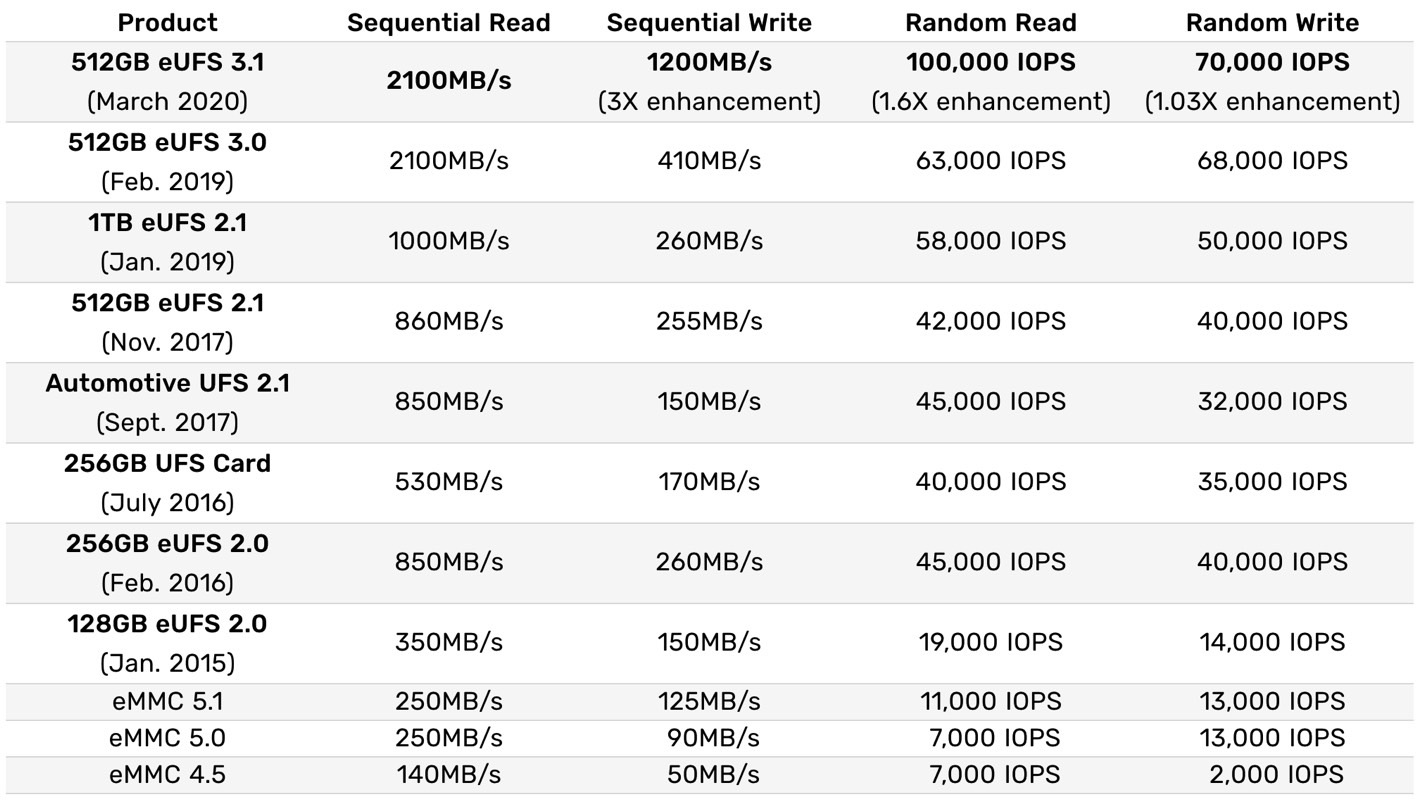- Samsung has started manufacturing the industry’s first 512GB UFS 3.1 chip, a storage solution that targets high-end smartphones like the upcoming Galaxy Note 20.
- The new storage chip will support write speeds three times faster than the Galaxy S20’s UFS 3.0 storage.
- Samsung says that a 100GB transfer will take just 90 seconds, compared to more than four minutes for UFS 3.0 memory.
- Visit BGR’s homepage for more stories.
Most of this year’s flagships will support 5G connectivity, which will significantly improve data transfer speeds once 5G networks are in place. That sort of upgrade means that several other components need to be upgraded for users to actually take advantage of an overall faster device, and that includes the RAM and flash storage.
We’ve already seen handset makers employ LPDDR5 RAM in this year’s phones, which should make a huge difference going forward. Many of them will embrace faster flash storage, and Samsung just announced that it’s ready to mass-produce the kind of speedy storage that faster phones will require. This UFS 3.1 storage will likely power the Galaxy Note 20 later this year.
Samsung’s new 512GB eUFS 3.1 storage is the industry’s first such flash storage option. The chip will support sequential read and write speeds of up to 2,100MB/s and 1,200MB/s, respectively, which means that the Galaxy Note 20 will be even faster than the Galaxy S20.

Samsung’s Galaxy S20 series ships with UFS 3.0 storage onboard, which supports the same write speeds as UFS 3.1 flash memory, but it’s nearly three times slower when it comes to sequential write speeds.
What that means in the real world is that data transfers of 100GB of data will only take about 1.5 minutes on UFS 3.1, compared to more than four minutes for the UFS 3.0 storage. Samsung says the speeds are similar to what you’d find on an ultra-slim notebook, which is an incredible feat for smartphones. Samsung can also package up to 512GB of such fast storage in a smartphone — the UFS 3.1 will also come in 128GB and 256GB varieties.
Samsung says in its press release that it began volume production of the fifth-gen V-NAND storage in China “to accommodate storage demand throughout the flagship and high-end smartphone market,” without revealing what devices will get the new 512GB UFS 3.1 chips. The Galaxy Note 20 series is likely going to be one of this year’s phones to make use of the speedier storage, though Samsung has yet to officially announce it.
The upcoming OnePlus 8 series is also a potential candidate for the new UFS 3.1 storage, given that OnePlus has been a quick adopter of new storage standards in previous years. Last year’s OnePlus 7 Pro packed UFS 3.0 storage, just like the Galaxy Fold, while Samsung’s Galaxy S10 only featured UFS 2.1 flash memory. The Fold’s delay turned the OnePlus phone into the world’s first handset to ship with faster storage. The Galaxy Note 10 that followed also shipped with UFS 3.0 chips inside.








